第7章
Now many events happen by chance, and events differing in importance; small pieces of good fortune or of its opposite clearly do not weigh down the scales of life one way or the other, but a multitude of great events if they turn out well will make life happier (for not only are they themselves such as to add beauty to life, but the way a man deals with them may be noble and good), while if they turn out ill they crush and maim happiness; for they both bring pain with them and hinder many activities. Yet even in these nobility shines through, when a man bears with resignation many great misfortunes, not through insensibility to pain but through nobility and greatness of soul.
If activities are, as we said, what gives life its character, no happy man can become miserable; for he will never do the acts that are hateful and mean. For the man who is truly good and wise, we think, bears all the chances life becomingly and always makes the best of circumstances, as a good general makes the best military use of the army at his command and a good shoemaker makes the best shoes out of the hides that are given him; and so with all other craftsmen. And if this is the case, the happy man can never become miserable;though he will not reach blessedness, if he meet with fortunes like those of Priam.
Nor, again, is he many-coloured and changeable; for neither will he be moved from his happy state easily or by any ordinary misadventures, but only by many great ones, nor, if he has had many great misadventures, will he recover his happiness in a short time, but if at all, only in a long and complete one in which he has attained many splendid successes.
When then should we not say that he is happy who is active in accordance with complete virtue and is sufficiently equipped with external goods, not for some chance period but throughout a complete life? Or must we add 'and who is destined to live thus and die as befits his life'? Certainly the future is obscure to us, while happiness, we claim, is an end and something in every way final. If so, we shall call happy those among living men in whom these conditions are, and are to be, fulfilled- but happy men. So much for these questions.
11
That the fortunes of descendants and of all a man's friends should not affect his happiness at all seems a very unfriendly doctrine, and one opposed to the opinions men hold; but since the events that happen are numerous and admit of all sorts of difference, and some come more near to us and others less so, it seems a long- nay, an infinite- task to discuss each in detail; a general outline will perhaps suffice. If, then, as some of a man's own misadventures have a certain weight and influence on life while others are, as it were, lighter, so too there are differences among the misadventures of our friends taken as a whole, and it makes a difference whether the various suffering befall the living or the dead (much more even than whether lawless and terrible deeds are presupposed in a tragedy or done on the stage), this difference also must be taken into account;or rather, perhaps, the fact that doubt is felt whether the dead share in any good or evil. For it seems, from these considerations, that even if anything whether good or evil penetrates to them, it must be something weak and negligible, either in itself or for them, or if not, at least it must be such in degree and kind as not to make happy those who are not happy nor to take away their blessedness from those who are. The good or bad fortunes of friends, then, seem to have some effects on the dead, but effects of such a kind and degree as neither to make the happy unhappy nor to produce any other change of the kind.
12
These questions having been definitely answered, let us consider whether happiness is among the things that are praised or rather among the things that are prized; for clearly it is not to be placed among potentialities. Everything that is praised seems to be praised because it is of a certain kind and is related somehow to something else;for we praise the just or brave man and in general both the good man and virtue itself because of the actions and functions involved, and we praise the strong man, the good runner, and so on, because he is of a certain kind and is related in a certain way to something good and important. This is clear also from the praises of the gods; for it seems absurd that the gods should be referred to our standard, but this is done because praise involves a reference, to something else.
But if if praise is for things such as we have described, clearly what applies to the best things is not praise, but something greater and better, as is indeed obvious; for what we do to the gods and the most godlike of men is to call them blessed and happy. And so too with good things; no one praises happiness as he does justice, but rather calls it blessed, as being something more divine and better.